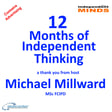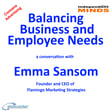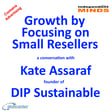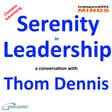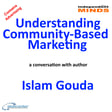
From Military Life to Civilian Employment – a conversation with David Nordel
David Nordel, Retired AF Command Chief Master Sgt is the founder of Max Fab Consulting, a specialist in supporting employers to being Veteran ready.
With their Veteran READY Certification and Training Program Max Fab assists employers to create a vibrant and inclusive veteran-READY culture that attracts and retaining highly skilled veteran employees.
In this episode of the Abeceder podcast The Independent Minds David explains to host Michael Millward the challenges that many veterans face when transferring to civilian employment and what employers can do to support veterans through that process.
David shares his personal experiences and reflects on the reality that whilst society thanks veterans for their service it can still be difficult to get a job.
Sources of help and support for veterans
- UK Armed Forces Covenant: guidance and support
- UK Career Transition Partnership
- UK Royal British Legion
- USA US Department of Veteran Affairs
- USA Jobs for Veterans
- USA USA Cares
The Independent Minds is made on Zencastr.
Zencastr is the all-in-one podcasting platform, on which you can create your podcast in one place and then distribute it to the major platforms.
Zencastr really does make creating content so easy.
If you would like to try podcasting using Zencastr visit zencastr.com/pricing and use our offer code ABECEDER.
Find out more about both Michael Millward and David Nordel at Abeceder.co.uk
Travel
David is based in Billings, Montana USA.
The Ultimate Travel Club, offers trade prices on travel to Montana and everywhere else.r You can become a member at a discounted price by using my offer code ABEC79 when you join-up.
Three the network
If you are listening to The Independent Minds on your smart phone, you may like to know that Three has the UK’s Fastest 5G Network with Unlimited Data, so listening on Three means you can wave goodbye to buffering.
Visit Three for information about business and personal telecom solutions from Three, and the special offers available when you quote my referral code WPFNUQHU.
Being a Guest
If you would like to be a guest on The Independent Minds, please contact using the link at Abeceder.co.uk.
We recommend that potential guests take one of the podcasting guest training programmes available from Work Place Learning Centre.
We appreciate every like, download, and subscriber.
Thank you for listening.
